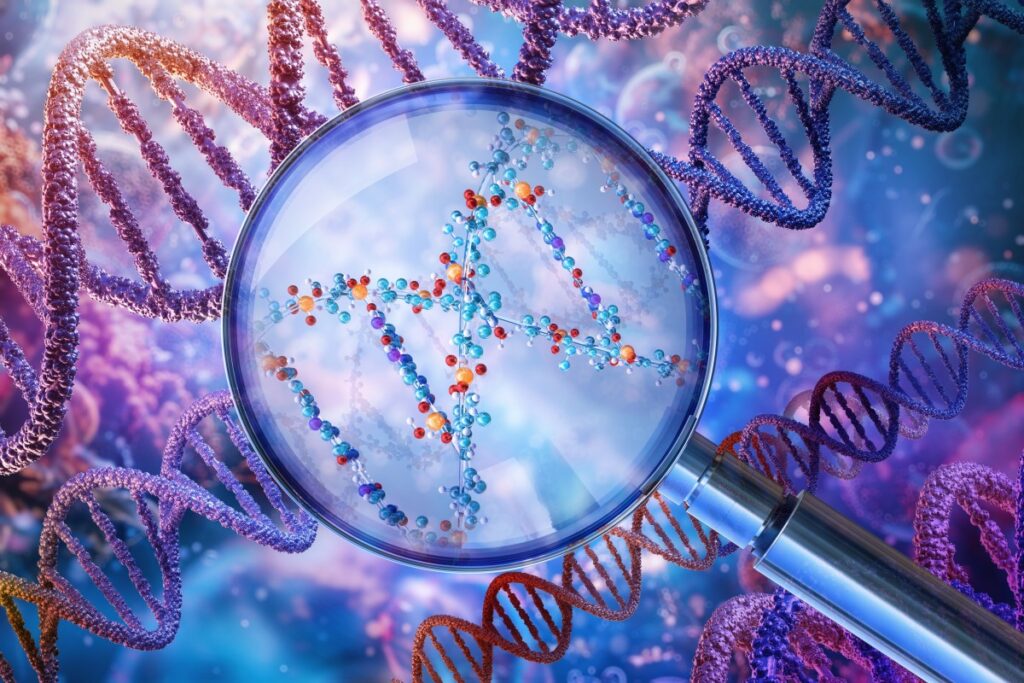Colorectal cancer (CRC) is one of the most common cancers worldwide, responsible for significant morbidity and mortality. Among the various genetic mutations that contribute to the development of colorectal cancer, the KRAS gene mutation, particularly KRAS G12C, has emerged as a crucial target for research and treatment development. In this article, we delve into the KRAS G12C mutation in colorectal cancer, exploring its mechanisms, clinical significance, and the latest advancements in targeted therapies.

What is the KRAS G12C Mutation?
The KRAS gene plays an essential role in regulating cell division and growth. It is a part of the RAS family of genes, which code for proteins involved in cellular signaling. Mutations in KRAS are common in various cancers, including colorectal cancer. One of the most well-known KRAS mutations is the G12C mutation, where glycine at position 12 of the protein is replaced by cysteine.
This mutation results in a constitutively active KRAS protein, meaning it remains “switched on” continuously. This persistent activation can lead to unchecked cell growth, a hallmark of cancer development. The KRAS G12C mutation specifically occurs in approximately 3–5% of colorectal cancer cases, though its presence is often linked to poorer prognosis and resistance to conventional therapies.
The Role of KRAS G12C Mutation in Colorectal Cancer
KRAS mutations, including G12C, are typically associated with resistance to several standard chemotherapy regimens. The mutation alters the behavior of cancer cells, making them more aggressive and less responsive to treatments that target the EGFR (epidermal growth factor receptor) pathway. As a result, patients with the KRAS G12C mutation may experience limited benefit from traditional therapies, including anti-EGFR monoclonal antibodies such as cetuximab and panitumumab.
Additionally, the KRAS G12C mutation has been linked to poor prognosis and more advanced stages of colorectal cancer. Understanding the molecular mechanisms driving the mutation is crucial for developing more effective, targeted treatments.
Clinical Diagnosis of KRAS G12C Mutation in Colorectal Cancer
Diagnosing the presence of KRAS mutations, including G12C, is essential for determining the most appropriate treatment strategy for colorectal cancer patients. Molecular testing, often performed on tumor samples, can identify the specific KRAS mutation present. Common methods of testing include:
- Polymerase Chain Reaction (PCR): This technique amplifies specific regions of the KRAS gene, allowing for the detection of mutations.
- Next-Generation Sequencing (NGS): NGS allows for comprehensive analysis of multiple genes, including KRAS, providing a broader understanding of genetic mutations.
- Droplet Digital PCR (ddPCR): ddPCR offers high sensitivity for detecting low-abundance mutations in liquid biopsy samples.
Identifying the KRAS G12C mutation is critical, as it helps guide treatment decisions and predict response to targeted therapies.
Targeted Therapies for KRAS G12C Mutations
The emergence of KRAS inhibitors has revolutionized the treatment landscape for patients with KRAS-driven cancers, including colorectal cancer. Traditionally, KRAS mutations were considered “undruggable,” but recent advancements have led to the development of promising therapies targeting the G12C mutation.
KRAS G12C Inhibitors: A New Frontier in Treatment
Several small molecules that selectively inhibit the KRAS G12C mutation have been developed, with significant progress in clinical trials. These inhibitors work by irreversibly binding to the mutated KRAS G12C protein, locking it in an inactive state and preventing its aberrant signaling. Key drugs in this class include:
- Sotorasib (Lumakras): This was the first KRAS G12C inhibitor to be approved by the FDA for use in non-small cell lung cancer (NSCLC) and has shown promise in CRC patients with the KRAS G12C mutation.
- Adagrasib (MRTX849): Another potent KRAS G12C inhibitor, adagrasib has demonstrated encouraging clinical results in early-phase trials for colorectal cancer.
These therapies have shown promising results in clinical trials, offering hope for patients with previously limited treatment options. While these inhibitors are not yet standard treatment for all CRC patients with the KRAS G12C mutation, ongoing studies are helping refine their clinical use and determine the most effective combinations with other therapies.
Combination Therapies for Enhanced Efficacy
Research is exploring the potential of combining KRAS G12C inhibitors with other therapeutic modalities to enhance treatment efficacy. For instance, combining KRAS G12C inhibitors with immunotherapy, chemotherapy, or targeted therapies like EGFR inhibitors could improve response rates and delay resistance. Clinical trials are currently investigating various combination strategies to determine the optimal treatment regimen for KRAS-mutant colorectal cancer.
Personalized Medicine: A New Approach to Colorectal Cancer Treatment
The advent of personalized medicine has transformed the way we approach cancer treatment. By understanding the genetic mutations present in a patient’s tumor, including KRAS G12C, clinicians can tailor therapies to address specific molecular targets. This approach not only improves treatment outcomes but also minimizes unnecessary side effects by avoiding ineffective treatments.
Patients with colorectal cancer who harbor the KRAS G12C mutation may benefit from targeted therapies and combination strategies that are not widely available to those with wild-type KRAS tumors. This level of precision, enabled by molecular testing, allows for more effective and personalized treatment plans.
Prognosis and Future Directions
The prognosis for patients with colorectal cancer and KRAS G12C mutations has traditionally been poor due to limited treatment options and the aggressive nature of the disease. However, the development of KRAS G12C inhibitors and other targeted therapies provides hope for improved outcomes. Ongoing clinical trials will likely continue to refine the use of these therapies, and new treatment strategies may emerge, offering better prognoses for patients with this mutation.
In the future, we anticipate that the integration of KRAS G12C inhibitors into treatment regimens will become more widespread, especially when used in combination with other therapies. Advances in personalized medicine and the understanding of the molecular underpinnings of colorectal cancer will continue to shape the therapeutic landscape, offering new avenues for managing and treating this challenging disease.